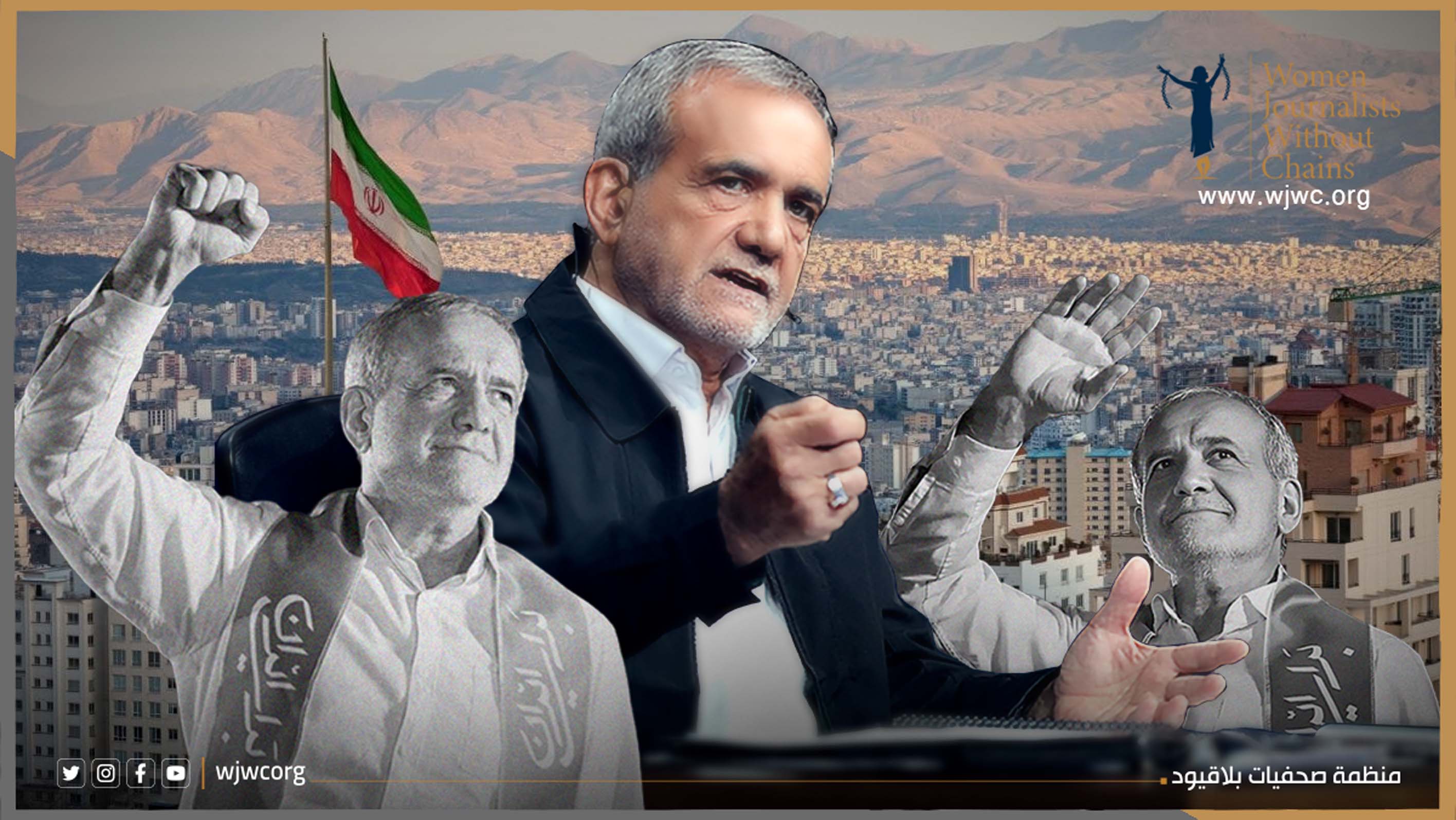Wjwc News

Iran: New Leadership Must Address Crackdown on Journalists
The Women Journalists Without Chains Organization (WJWC) has called on Iran's new administration to halt the widespread repression of journalists.
Numerous journalists remain unjustly confined in notorious prisons, while others face intrusive surveillance and constant monitoring by security forces.
Tawakkol Karman, the organization's 2011 Nobel Peace Prize-winning head, emphasized the importance for Iranian authorities, under the leadership of President Masoud Pezeshkian, to foster an environment that embraces independent journalism instead of perceiving it as a threat to the state.
On June 1, journalists Saba Azarbek and Yashar Soltani were sentenced to two years and 13 months in prison, respectively, on charges of 'propaganda against the state' and 'spreading false news,' offenses not recognized under international law. These sentences add to the alarming count of at least 23 journalists currently imprisoned in Iran.
The escalating use of surveillance and espionage-related laws in Iran has created a climate of fear and self-censorship among journalists. Since 2022, these measures have intensified, leading to a dramatic increase in censorship and a severe curtailment of press freedom.
In light of these oppressive measures, WJWC has called for the immediate release of detained journalists and an end to the ongoing repression. The organization highlighted that the current environment severely hampers journalistic work, making it increasingly difficult for journalists to perform their duties.
Karman emphasized, "I urge President Masoud Pezeshkian to end the inhumane treatment of journalists and revoke laws that restrict journalistic work, freedom of opinion, and expression. These laws should be replaced with legislation that protects citizens' right to access information and ensures press freedom."
Following the tragic death of Mahsa Amini at the hands of the morality police, the ruling authorities have turned their anger towards the press, resulting in unjust arrests, harsh sentences, and threats against journalists. The authorities, through their extensive media apparatus, have attempted to vilify journalists, accusing them of espionage or serving foreign interests. Additionally, there have been ongoing efforts to undermine and intimidate female journalists, impairing their ability to carry out their journalistic duties. These actions reflect the recklessness of officials and the ruling regime.
In congratulating the newly elected president, WJWC outlined several critical actions for his first 100 days:
Immediate and unconditional release of journalists imprisoned solely for carrying out their journalistic duties.
Facilitating an environment for independent media to operate without undue restrictions, recognizing it as a fundamental pillar of any democratic society.
Reinstating journalists arbitrarily dismissed for expressing their opinions and practicing their profession, thereby restoring their livelihoods.
Ensuring the freedom to disseminate news and facts, including information on union activities and public affairs discussions.
Guaranteeing the physical and psychological safety of journalists, enabling them to work without intimidation or fear.
Ceasing intimidation tactics against journalists abroad, as reports have revealed instances of death threats orchestrated by government security services.
Ending the pressure imposed on the families of journalists, both within the country and abroad, allowing them to live in peace, free from fear of retaliation by the authorities.
WJWC's call to action underscores the urgent need for systemic reforms to protect press freedom and uphold journalists' rights in Iran.
